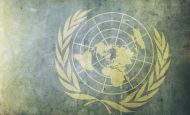Press Release:
NGO Monitor Exposes UN Double Standards on Settlement Business Activity
Presents New Study on European and Multinational Businesses Operating in Occupied Territories Around the World
In a series of events taking place today and tomorrow at the United Nations headquarters in Geneva, NGO Monitor will confront the Human Rights Council (UNHRC) and its NGO allies, exposing their double standards towards Israel. The UN High Commissioner for Human Rights is currently preparing a blacklist, the first-ever, of companies allegedly engaging in business activities in the West Bank, while completely ignoring areas with more far-reaching activities, including in Western Sahara, Northern Cyprus, and Crimea.
“The extensive business activity in occupied territory around the world, which goes unmentioned by the UN and NGOs, demonstrates the utter indifference to human rights that are not tied to the UN’s obsessive and politicized focus on Israel,” said Anne Herzberg, Legal Advisor at NGO Monitor. “International law does not prohibit businesses from operating in occupied territories, yet UN bureaucracy is again mobilized to deliberately target Israel.”
To highlight the double standards, NGO Monitor is hosting Professor Eugene Kontorovich, Professor at Northwestern University School of Law and Head of the International Law Department at the Kohelet Policy Forum, to brief the Council, journalists, and diplomats on a new study, “Who Else Profits: The Scope of European and Multinational Business in the Occupied Territories.” The report reveals that business activity in occupied territories is ubiquitous, and involves some of world’s largest industrial, financial services, and other major publicly traded companies. Such companies include Siemens, Credit Agricole, BNP Paribas, Satander, Vodafone, Renault, and Turkish Airlines, to take just a few examples.
The evidence provided in the Kohelet study, co-authored by Professor Kontorovich, demonstrates the fundamental falseness of the assumption underlying the UN blacklist and many NGO publications – that businesses violate human rights when they engage in their ordinary business practices under the jurisdiction of an occupying power.
The UN previously delayed the publication of its blacklist due to a discriminatory process that lacked oversight, notice of inclusion, and the ability to challenge the arbitrary determinations. It is unknown what steps, if any, have been taken to alleviate these fundamental concerns.
Ms. Herzberg concluded, “International rules either apply to everyone or to no one. ‘Who Else Profits’ highlights the discriminatory nature of the UN blacklist. Because the UN blacklist deliberately ignores the same activity throughout the world, yet targets one country alone, it should be immediately cancelled.”

